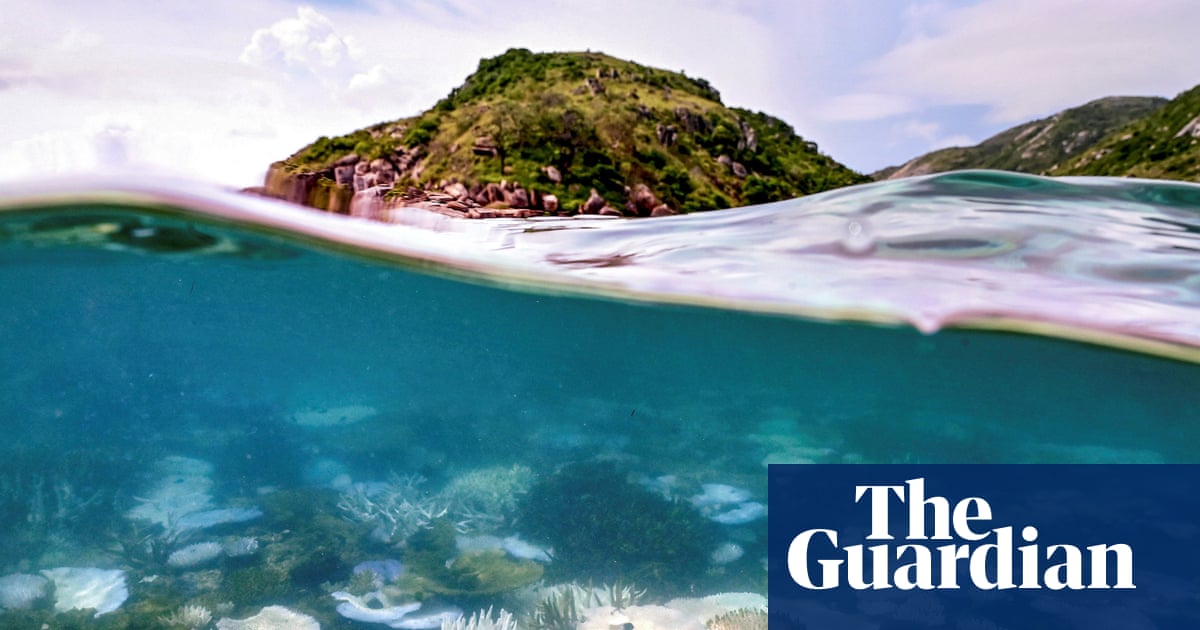Unless global heating is reduced to 1.2C ‘as fast as possible’, warm water coral reefs will not remain ‘at any meaningful scale’, a report by 160 scientists from 23 countries warns
Here in South Australia we are starting to see the effects and it’s pretty chilling.
The algae bloom affecting many of our suburban beaches (which is most of Adelaide) and a lot of country ones are seeing huge numbers of dead marine life being washed up.
Anything from leafy sea dragons to fish, stingrays, and sharks. The foam created on some days covers whole sections of beach.

While apparently it’s safe, there are warnings that you may experience breathing issues and rashes so your supposed to bring your inhaler and rinse off after you have been in. On windy days it can affect you even if your walking close to the beach.
As we head into summer the damage to local seaford providers (the seafood is fine to consume but people are wary) and cafe owners will be huge and is already starting to take effect.
Because our beaches are so close, people would go down after work for a dip or have a drink at the suburban pubs and cafes.
https://www.abc.net.au/news/2025-07-23/sa-toxic-algal-bloom-explained/105560008
This is why I chose not to have kids. We’re fucked. Our children will be proper fucked. Their children will probably not get to see old age. Thanks for all the fish!
We’re fucked and now it’s a matter of determining how much fuckeder we’re going to be.
“As fast as possible” was 50 years ago
You always have to settle for second best every time there’s a new milestone, but second best never comes, nor the rest, until the best you can do is just try to die in peace. We did it! 🥳
Maybe in your part of the world. Gaza, Ukraine, Russia, the USA, etc. would like a word…
I said try, and really, it’s more about institutions that know better but choose not to. Ya know, the second best time to start is now, but now keeps getting pushed further
Oh, I was reacting to the “We did it! 🥳” part, but no need to take me seriously here. We all can die or try as we each see best befits us.🙃
People who could positively impact this: “Awe, man, I go there on my yacht once a year. Anyway, those stocks still climbing? That boat needs some upgrades.”
I think we’re going to have to genetically engineer some corals.
Unless global heating is reduced to 1.2C
If we plateaued right now and did everything possible to draw CO2 out of the atmosphere and oceans, it would probably take a few thousand years to get back down. The reasoning - we weren’t the main CO2 contributor, we just were the extra catalyst to throw things off to begin the acceleration up. So now that things are off balance and feedbacks are kicking in, how can we reverse what we put into the environment AND counter the extra feedback outputs? It’s like trying to stop the boulder that was easy to push onto the hill slope.
Humanity absolutely was and continues to be the main ‘CO2 contributor’; coal, oil, and natural gas didn’t just dig themselves out of the ground and spew themselves into the atmosphere. The immediate halting of worldwide pollution is necessary, but unfortunately unlikely to occur in a manner keeping to the Paris Agreement’s goals, particularly while Big Oil has such a strong influence over American politics and countries worldwide continue to rely on and expand fossil fuel production.
I see you’re a man of science and facts. May I subscribe to your valuable newsletter?






